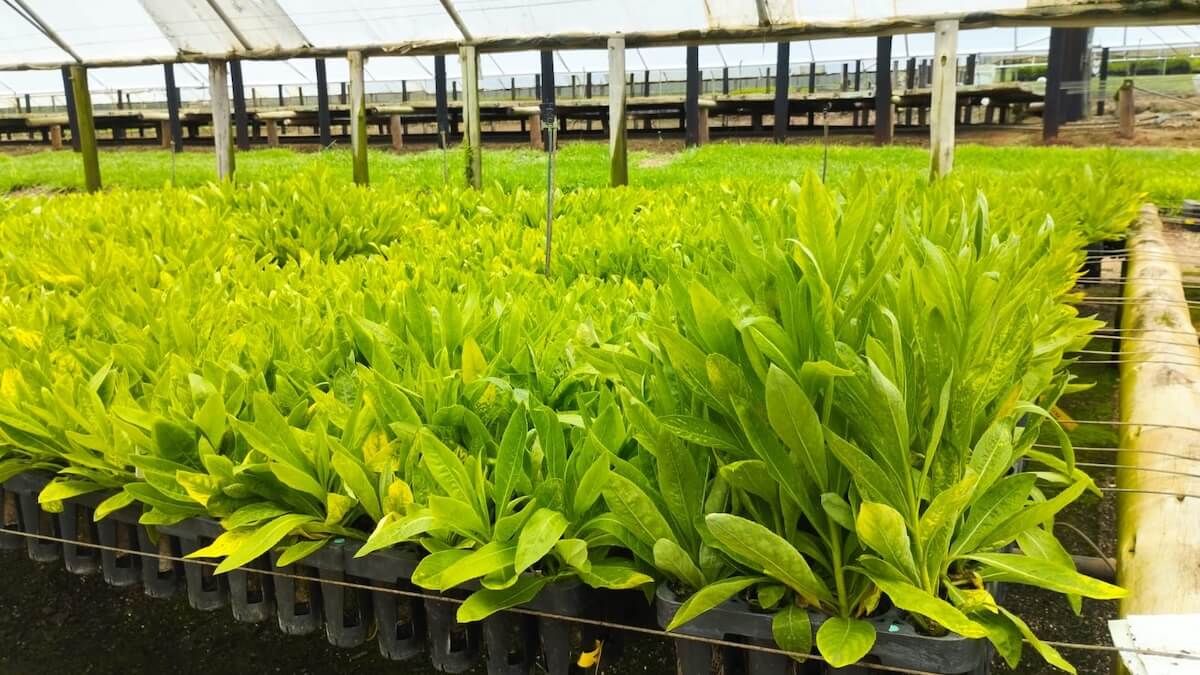The article For batteries: French start-up extracts nickel from daisies first appeared in the online magazine BASIC thinking. With our newsletter UPDATE you can start the day well informed every morning.

Nickel is an important component for battery production – and therefore also for the energy transition. A French company has now developed a process with which nickel for batteries can be obtained using daisies. The process could make the procurement of raw materials significantly more environmentally friendly.
Nickel plays a central role in the production of modern batteries. For example, it is used in large quantities for the production of lithium-ion batteries, which are used, among other things, in electric cars but also in energy storage systems. The metal makes it possible to produce batteries with higher energy density, which enables longer ranges and better performance in electromobility.
According to forecasts, the need for nickel to produce lithium-ion batteries for electromobility will increase in the EU from 2030 112 kilotons annually be. For comparison: In 2018 it was still six kilotons.
However, conventional nickel mining places great strain on the environment. During opencast mining, large areas are cleared and soil and water are contaminated with pollutants such as heavy metals and sulfur dioxide. In addition, large amounts of CO2 emissions are generated during mining and processing.
The French startup Genomines is now tackling these problems in nickel extraction with the help of plant metallurgy solve. Instead of environmentally harmful mining, the company relies on daisies that pull nickel out of the ground for batteries.
This is how nickel can be obtained with daisies for batteries
The French company uses plants from the daisy and sunflower families for its so-called phytomining. These are genetically optimized so that they can extract nickel from the soil and store it in high concentrations in their plant parts.
This process uses areas that are neither suitable for mining nor agriculture. The corresponding soils have a nickel concentration that is too low for mining, but it is too high for traditional agriculture.
“Our mission is to use plant biotechnology to extract resources essential for clean energy technologies through scalable processes that preserve biodiversity, soil health and human well-being,” explains Genomines co-founder and CEO Fabien Koutchekian. “Our vision is to create an entirely new plant-based metals industry.”
After harvesting, the plants are burned, providing “battery-grade metals more quickly and cost-effectively,” according to Genomines. The ashes of the plants contain nickel as a so-called “bio-ore”, which can now be extracted.
Faster mining at lower costs
Nickel extraction via plants can be carried out much faster than in conventional mining. According to the French company Plant growth can be optimized so that a harvest is possible “in just a few months”.
The development of a nickel mine, on the other hand, could take up to 15 years until it is put into operation. When it comes to operating costs, Genomines also wants to be 40 to 50 percent lower than conventional methods.
Genomines unlocks a scalable new resource base – we can fundamentally rebalance global mineral supply chains for decades to come.
The entire process only produces a fraction of the emissions of traditional mining. At the same time, the plants bind additional CO2 as they grow, meaning the process can run almost emission-free.
Also interesting:
- Energy consumption: How much electricity do electric cars really use?
- Dismantling, transitional technology, danger: wind power claims under review
- Why electric cars use more energy on the highway
- Waste heat from data centers: Finland shows how the energy transition works
The post For batteries: French start-up extracts nickel from daisies appeared first on BASIC thinking. Follow us too Google News and Flipboard or subscribe to our newsletter UPDATE.
As a Tech Industry expert, I find the idea of extracting nickel from daisies for batteries to be quite innovative and potentially game-changing for the renewable energy sector. Nickel is a key component in lithium-ion batteries, which are used in a wide range of electronic devices and electric vehicles.
By finding a sustainable and eco-friendly way to extract nickel from daisies, this French start-up could help reduce the environmental impact of battery production and contribute to the shift towards cleaner energy sources. Additionally, utilizing natural resources like daisies for battery production could help reduce the reliance on traditional mining practices, which can be harmful to the environment and local communities.
Overall, I believe that this approach has the potential to revolutionize the battery industry and pave the way for more sustainable and environmentally-friendly energy solutions. I will be closely following the developments of this French start-up and the impact their technology could have on the tech industry as a whole.
Credits